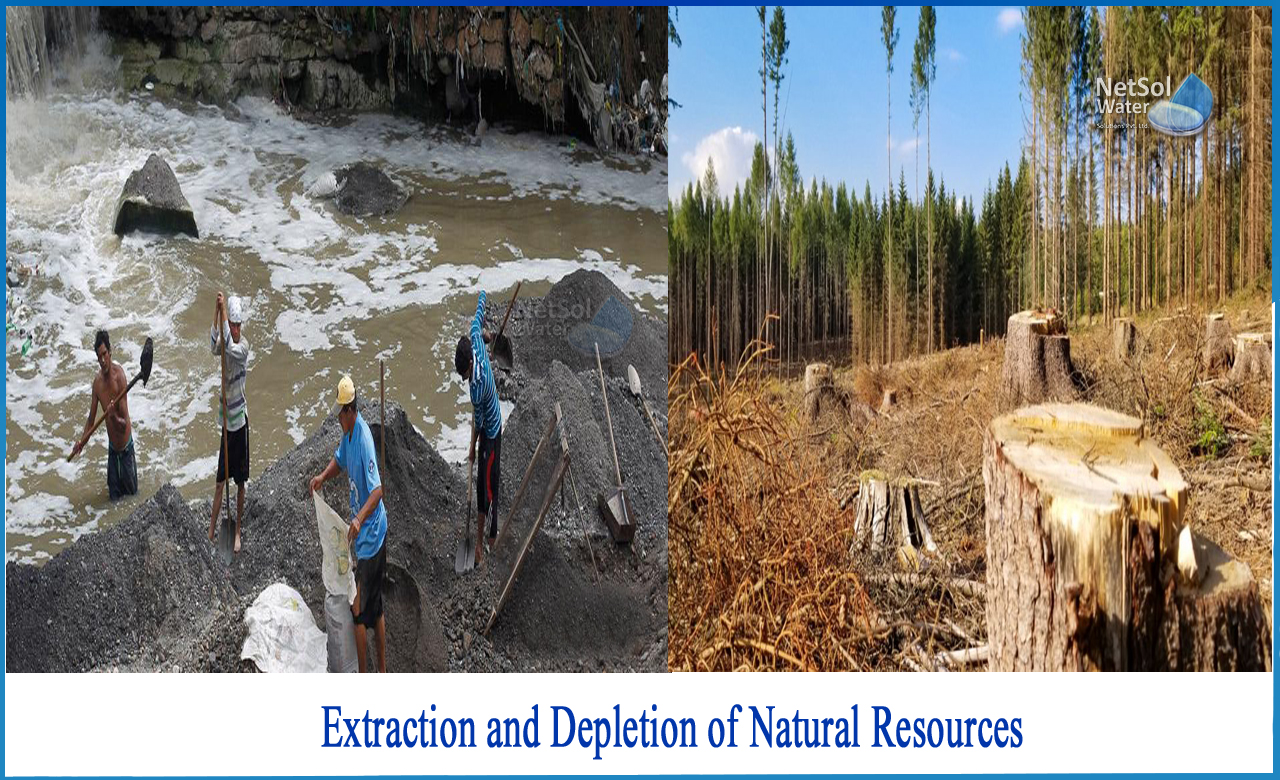What is Extraction and depletion of natural resources?
Any operation that takes resources from nature is considered resource extraction. This can range in size from preindustrial civilizations' customary use to global industry. Extractive industries, together with agriculture, form the foundation of the economy's primary sector. Extraction yields raw materials, which are subsequently treated to add value. Hunting, trapping, mining, oil and gas drilling, and forestry are examples of extractive industries. Natural resources may significantly increase a country's prosperity.
Resource curse
A quick flood of money induced by a resource boom, on the other hand, can bring societal difficulties such as inflation, which harms other businesses, and corruption, which leads to inequality and underdevelopment; this is known as the "resource curse."
Extractive industries are a rapidly rising activity in many developing nations, but the money created does not necessarily result in long-term and equitable prosperity. People frequently criticize extractive sector enterprises of maximizing short-term gain, meaning that less-developed countries are vulnerable to large multinationals. Alternatively, host governments are frequently thought to be merely interested in maximizing short-term income.
Natural resource management
A robust civil society may play an essential role in ensuring successful natural resource management.
Resource Depletion
Natural resource depletion is regarded as a problem for long-term development. To guarantee that it serves the requirements of the present without jeopardizing future generations' ability to satisfy their own needs, the phrase sustainable development has numerous meanings.
However, in broad words, it involves balancing the requirements of people and animals on the planet today and in the future. Natural resource depletion is an issue for sustainable development because it has the potential to harm present ecosystems and influence the demands of future generations.
Natural resource depletion is linked to social injustice. Given that the majority of biodiversity is found in developing nations, depletion of this resource may result in a loss of ecosystem services for these countries. According to some, this depletion is a key source of societal instability and violence in emerging countries.
At the moment, there is particular worry for rainforest regions, which contain the majority of the Earth's biodiversity.With 30 percent of the Earth's surface already farmed, deforestation and degradation endanger 8.5 percent of the world's forests. Given that 80 percent of people rely on plant-based medications and that 34 percent of the world's prescription drugs contain plant-derived chemicals, the loss of the world's rainforests might result in a loss of possible life-saving treatments.
Conclusion
Natural resource depletion is driven by "direct drivers of change" such as mining, petroleum extraction, fishing, and forestry, as well as "indirect drivers of change" such as demography (e.g., population increase), the economy, society, politics, and technology. Another element contributing to natural resource depletion is present agricultural practices.For example, excessive nitrogen usage depletes soil nutrients, and desertification occurs. Natural resource depletion is a persistent worry for civilization.
Netsol Water is Greater Noida-based leading water & wastewater treatment plant manufacturer. We are industry's most demanding company based on client review and work quality. We are known as best commercial RO plant manufacturers, industrial RO plant manufacturer, sewage treatment plant manufacturer, Water Softener Plant Manufacturers and effluent treatment plant manufacturers. Apart from this 24x7 customer support is our USP. Call on +91-9650608473, or write us at enquiry@netsolwater.com for any support, inquiry or product-purchase related query.



